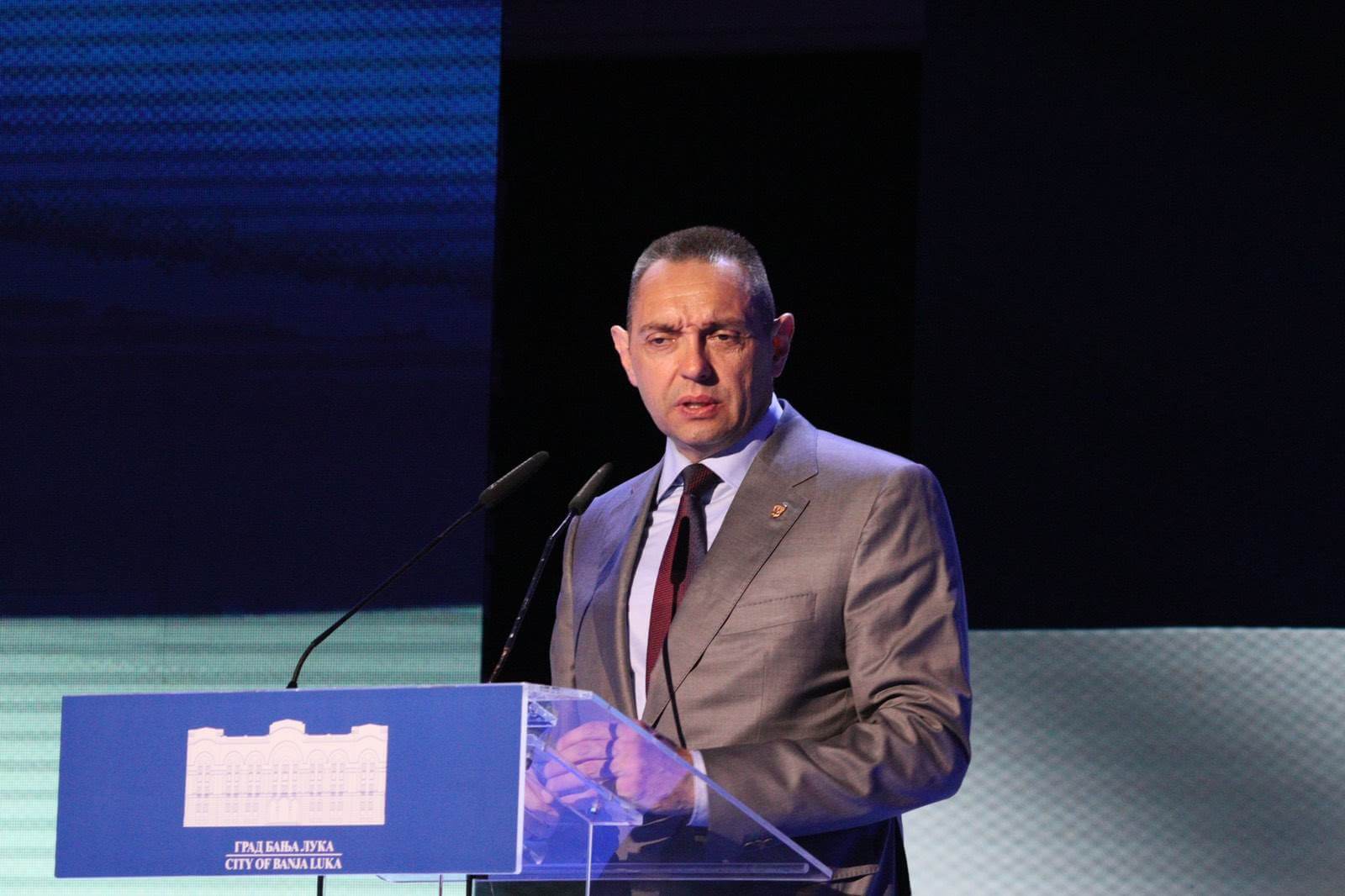In an interview on Friday, Serbian Interior Minister Aleksandar Vulin asserted that Serbia does not belong to the European Union (EU) because its members “don’t want” Serbia to join the bloc.
“The question is not whether we want to join the EU, but whether the EU wants Serbia. Judging by the insane blackmail they are exposing us to to recognise Kosovo, abolish Republika Srpska, and impose sanctions on Russia, they don’t want us,” he stated, adding, “The sooner we accept that… the better off we will be.”
2. And this is not just a specific circumstance related to 🇷🇺 invasion of 🇺🇦. No, Vucic has been working hard to move #Serbia foreign policy away from the #EU in the last 10 yrs.
— Demush Shasha (@DemushShasha) October 15, 2022
Serbia has been an EU candidate since 2012, with the accession process having started in 2014. Though President Aleksandar Vučić has maintained that joining the bloc is a major priority, reforms related to the accession process have slowed down in recent years.
Serbia’s EU membership is mainly dependent on its recognition of Kosovo as an independent country, with Kosovo having declared its freedom in 2008. Normalising ties is thus the biggest pre-condition for either to progress in their accession talks. However, according to several surveys, more than half of the Serbian population is not in favour of joining the bloc due to the Kosovo condition.
Being on the fence has become increasingly uncomfortable, as can be gleaned from Vučić’s insistence that Serbia is "militarily neutral, but not politically neutral" and "on the European path."
— Aleksandar Brezar (@brezaleksandar) October 12, 2022
"I am fond of the West, I really love Russia, but I love Serbia the most."
In this regard, Vulin said he is not optimistic about France and Germany’s recent proposal, which would grant Serbia an accelerated path toward EU membership if it allowed Kosovo to be part of the United Nations (UN) and other international organisations.
“[W]here did you see the accelerated reception? As far as I know, the final decision is made by each parliament of each EU country. Do you really think that Croats will vote for Serbia’s accession to the EU without any other conditions?” he stressed, in reference to the frayed relations between Serbia and Croatia, which could veto Belgrade’s progress as an EU member.
War is no time for ambiguity. We want Serbia to choose Europe and to build trust with 🇪🇺 partners. EU institutions expect from all serious accession countries including 🇷🇸 clear red lines towards Russia and its political envoys as Moscow continues the brutal attack on 🇺🇦.
— Vladimír Bilčík MEP (@VladoBilcik) October 17, 2022
Another point of contention is Serbia’s refusal to partake in EU sanctions against Russia due to the Ukraine war. To this end, during his visit to Moscow in August, Vulin claimed that Serbia was the only European country that has not “become part of the anti-Russian hysteria.”
In fact, in May, the two sides signed a contract for Russia to provide “uninterrupted” access to natural gas for the next three years. The deal came after massive protests by pro-Russian citizens in Serbia, who felt that the Serbian government has been distancing itself from Russia in light of the Ukraine war.
Against this backdrop, the European Parliament rapporteur for Serbia, Vladimir Bilčik, said last week that accession talks with Serbia “will not be frozen,” but underscored that the process won’t move forward unless it imposes sanctions against Russia, which he said “is not pressure on Belgrade, but shows that Serbia should confirm its choice for EU membership.”
“For Serbia’s accession negotiations to really progress, we need a clear signal that Belgrade is serious about its European path and that it is working with us. That is why foreign policy alignment is a critical issue,” he added, stressing that the bloc wants Serbia to make “the right choice” and be on the “winning side.”
I handed today @EU_Commission Annual Report on Serbia to @predsednikrs and Ministry of integration @MINEIsrb highlighting progress and shortcomings. Foreign policy alignment is increasingly relevant in light of Russian aggression against Ukraine. We want to count on Serbia. pic.twitter.com/eHkptUsRMy
— Emanuele Giaufret (@EGiaufretEU) October 12, 2022
A report by the European Commission released last week noted that “Serbia’s compliance with EU’s foreign policy has significantly decreased – from 64% in 2020 to 45% today,” with EU Enlargement Commissioner Oliver Varhelyi underlining that it is “clear that Serbia needs to step up its efforts in aligning with positions in foreign policy, including declarations and sanctions in line with the negotiating framework,” in reference to Russia.
In addition, EU Commissioner for Home Affairs Ylva Johansson warned last Friday that Serbia’s visa waiver to the bloc could be suspended if it does not control illegal migration. Serbia allows visa-free travel from countries that are excluded from the bloc’s visa-free system, like Armenia, Azerbaijan, Bahrain, Belarus, Bolivia, Burundi, China, Cuba, Guinea Bissau, India, Indonesia, Jamaica, Kyrgyzstan, Kuwait, Kazakhstan, Mongolia, Oman, Qatar, Russia, Suriname, Tunisia, and Turkey.
Over 106,000 irregular entries into the EU have been recorded through the so-called Western Balkans route that includes Serbia, a spike of 170% over the same period last year.
— Fuad Alakbarov (@DrAlakbarov) October 15, 2022
Serbia was reportedly also condemned for ‘rewarding’ countries that do not recognise Kosovo’s independence with visa-free travel. In this respect, German Member of Parliament (MP) Konstantin Kuhle emphasised, “It wants to destabilise other European states and is causing human suffering with its refugee policy. The EU must not accept this. The accession negotiations with Serbia must be stopped.”
Acknowledging the illegal immigration issue, Vučić said the new EU visa rules, which will enter into force at the start of next year, would make it tougher for people to travel from Serbia into the bloc. He also said that Hungary, Austria, and Serbia are in talks to ensure greater integration and collaboration among their law enforcement forces to tackle the issue.

